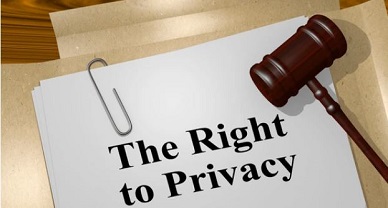Huawei and Verizon Settle Their Battle
Huawei and Verizon settle their FRAND patent dispute concerning the infringement claims in Texas, which was done shortly after the start of the trial. Through the settlement which was under confidential terms, the parties settle their patent dispute and lawsuits. Both the companies have been settling the complex FRAND patent dispute and lawsuit through reaching an agreement. It is more reasonable to assume that with the recent anti-suit injunction, more influence is for parties to amicably settle their dispute. With vigorous marketing of patent portfolios, it becomes necessary that those dispute settlements must be done on an amicable basis. Also, Huawei wants to have a strong patent portfolio in the Chinese market where all such measures are more or less beneficial for it.
[Image Source: gettyimages]
Chinese market
With the change in the patent law in China, curbing the influence of large technology companies in China so that it can be ensured that the innovation and data remain in the country giving relief for all patent applicants for applying in China for declared key technology. The recent decision of the Wuhan Intermediate Court of China in the case of Samsung and Ericsson is important where the Chinese court declared its jurisdiction to set a global FRAND tariff in the licensing dispute between Ericsson and Samsung. The contention of Samsung was to set a global license rate for Ericsson’s SEP. Meanwhile, Ericsson sued Samsung for breach of FRAND terms. The decision being an important one gives a clear mandate and sets a new standard for global SEP litigation, which also results in preventing Ericsson from seeking an injunction to prevent Samsung from enforcing Wuhan ASI.
Ericsson ignoring the threats from Wuhan filed the anti-suit injunction in Texas District Court turning into a jurisdictional and interpretive contest between China and US, where the Texas Court allowed Ericsson to proceed with the FRAND action against Samsung. With such hindered market participation, it is likely to avoid any such global competition and instead contribute to the establishment of 5G.
Talking about Huawei and Verizon, the terms of the agreement were confidential, but were satisfied with the agreement. In the specific case of Huawei and Verizon, 12 standard-relevant patents (SEPs) were at issue, which Huawei allegedly used in Verizon’s infrastructure. Huawei had ordered Verizon in 2019 to pay royalties for the use of more than 230 Huawei patents, demanding more than US$1 billion (Reuters reported at the time). And also in 2019, the United States blacklisted Huawei over alleged national security concerns.
After nearly a year of negotiations, talks between the two companies broke down in January 2020, after which Huawei filed several infringement lawsuits against Verizon in Texas courts. Verizon then filed counterclaims against Huawei, accusing Huawei of patent infringement.
Having a maximum of 5 G-related patents in the world, Huawei holds 100,000 active patents worldwide which include 10,000 US patents. Any repercussion from the side of the US in terms of denying their patent will not be a loss for Huawei and can earn revenues from royalties even from US companies.
Author: Saransh Chaturvedi an associate at IP And Legal Filings, in case of any queries please contact/write back us at support@ipandlegalfilings.com.




